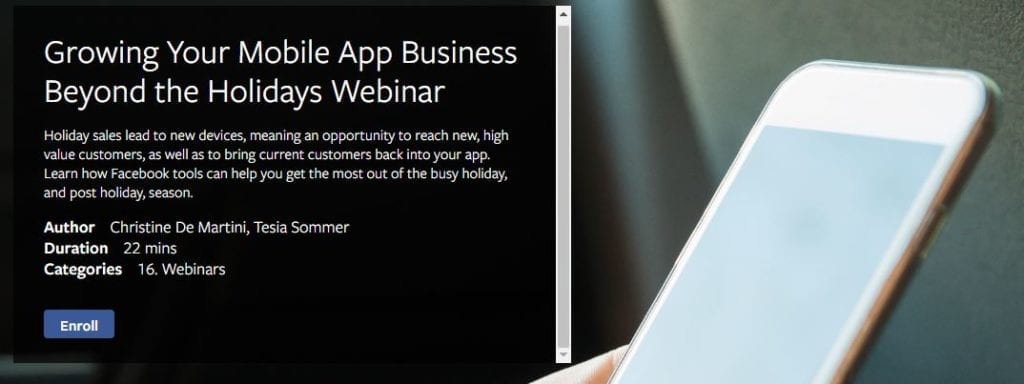
You’re never done collecting email addresses.
Why? Because your email list is likely to degrade by about 22% every year. This is potentially hugely detrimental to your marketing efforts, as a robust email list is an essential component of any marketing strategy.
Buckle up, because, in this article, we’re unpacking why email marketing continues to be a marketing game-changer. Our Lifecycle & Email Marketing Strategist, Joel Staniszewski, will also arm you with 35 ingenious tips to grow your email list faster than ever.
What You’ll Learn:
- What the Data Says
- Understanding Your Audience
- 38 Tactics for Rapid Email List Expansion
- How to Build an Email List Without a Website
- Advanced Email List Building Tools and Services
- Why Effective Marketing Is So Effective
- Leveraging Interactive Content
- Compliance and Permission Marketing
- Optimizing Email Campaigns
- FAQs on How to Build an Email List
My Expert Opinion on How to Build an Email List That Converts
The email marketing landscape continues to change, but one thing remains constant: It’s always important to have a long email list. However, you want to make sure your contacts are relevant and likely to convert. You’ll need to grow an email list efficiently to maximize conversions and profitability.
One of the keys here is to understand your audience and what will most effectively engage them when targeting your lead generation efforts. Personalization is critical in today’s environment, helping you make a direct connection with your target market.
You should also integrate and utilize the right email marketing software and services to automate your processes as much as possible, blending accuracy with efficiency to help you get the most from your campaigns.
By taking the right approach to email marketing, you can better determine how to grow an email list and achieve your short- and long-term objectives.

What the Data Says
Hold on to your data—we’re diving into the email marketing rabbit hole and the numbers have some stories to tell.
Here’s what the wizards in the land of statistics and spreadsheets have found:
- HubSpot uncorked the secret that email marketing is being used by 50% media planners, and 22% of them are giving it a whirl for the first time this year.
- Email marketing revenue is racing toward the $14 billion mark by the end of 2025, according to DemandSage. That’s more than the GDP of some countries!
- Statista also unveils that 4 billion people use email daily, and this fiesta is set to grow to 4.89 billion by 2027. 347 billion emails are sent and received each day.
- 64% of small businesses are employing email marketing to reach their customers.
- 37% of brands are increasing their email budget, while a meager 1.3% are tightening the purse strings.
- If you’re aiming for your target’s inbox, shoot on a Friday. Campaign Monitor reports that it sees the highest email open rates at nearly 19%.
- 43% of marketers using generative AI for email creation say it’s the most helpful tool for creating email copy, according to HubSpot.
- 81% of B2B marketers say that email newsletters are the best tool for content marketing.
- More than 8 in 10 B2C marketers use automation, and over 80% of people will open a welcome email, which generates 4x as many opens and 10x as many clicks as other email types.
- 74% of Baby Boomers think email is the most personal channel to receive communications from brands, followed by 72% of Gen X, 64% of Millennials, and 60% of Gen Z (Bluecore).
This data fiesta paints the picture of email marketing as an ever-evolving, Herculean marketing channel that shows no signs of slowing down. So whether you are a startup or a Fortune 500, email marketing might just be the secret sauce you didn’t know you needed.
Understanding Your Audience
In learning how to build an email list, you must know how to identify and segment your audiences first. Conduct market research, looking at typically members of your target market, competitors’ audiences, and your own existing customer base.
When you have a broader picture of your audience, you can begin segmenting them into individual audience personas that each describe a particular type of customer. For example, you might determine that one segment consists of single parents while another comprises students.
Each audience segment will respond to different email content. So, to grow your email list with each segment, tailor your content to their unique wants and needs.
Think about certain pain points that you can touch on in your content, or language that would appeal to each segment while aligning with your brand voice.

38 Tactics for Rapid Email List Expansion
1. Generate Word-of-Mouth Buzz
If you want to build your list, generate some word-of-mouth buzz by offering your existing contacts outstanding content in their inbox.
If you’re under the impression that every email blast should be little more than a dressed-up sales pitch, think again.
Craft content that your contacts actually want to read. Use an irresistible subject line that will draw them in and convince them to click.
In fact, your newsletters should be so good that people are terrified of missing out. Take inspiration from Morning Brew, which built its entire business through an email newsletter that provides the latest news from Wall Street to Silicon Valley.
In short, treat your email marketing much like you handle your content marketing. Give the people what they want and they’ll spread the word that you’re providing valuable info.
This is one of the best ways to work on your email list building. Then your list will grow organically.
2. Go Offline
Did you know that you can collect email addresses without even going online?
Sure, it’s often easier for people to fill out a form online because they might be using a browser that pre-fills many of the common fields for them. But that doesn’t mean that you can’t collect email addresses offline.
Working at an event? Ask people to fill out a form the old-fashioned way (with a pen). Be sure to include a place where they can put their email address so you can add it to your distribution list.
Of course, the technology works in your favor. Sometimes, you just need to scan someone’s badge and you’ll automatically collect the person’s email address.
Be sure to import all the email addresses you’ve collected to your own database.
3. Direct Mail Campaign
Why not use a strategy from yesteryear to help you with modern-day digital marketing?
Use a direct mail campaign (yes, you’ll have to open some books that you haven’t touched in years) to encourage people to join your email list.
By the way, even this far into the 21st century, some marketers still swear up and down by hard-copy newsletters. If that’s how you roll, use the newsletters to promote your email list.
4. Use Popups
If you’re using popup technology to get people to subscribe to your list, then you’re probably also using a cookie that effectively prevents the popup from appearing again until after a certain number of days have passed. Check your settings to see if this is happening and change them so that your popup will appear over and over again.
If they don’t subscribe right away they may change their mind and decide they want to subscribe in the future.
You should have an easy-to-locate link somewhere on your site that makes it easy for them to do so.
5. Gated Content
People are always looking for productivity hacks. Maybe you’ve got one that’s relevant to other people in your niche.
If so, put it on the cloud and offer it for free. Give it a catchy title and watch it lure people in. The only “price” they will have to pay to access your service is an email address.
Gated content is a great suggestion if you’re wondering how to build an email list easily.
6. Free Tool
If you have a useful tool, give it away for free. Whether it’s a budget planner, a health tracker, or any other tool, people love free stuff. HubSpot’s templates are a classic example, offering an array of free resources that require you to enter your email.
But it’s essential that this tool is actually useful. This isn’t about creating something cheap for the sake of capturing emails—it’s about providing value first.
7. Set Up Traffic-Specific Sticky Bars
Sticky bars are the little micro banners at the tops of websites. They lay over your actual content. You can use them to offer discounts or advertise your email list.
You can also personalize them to match where your traffic is coming from. Did the user come from Facebook? Say that somehow! Maybe they found you via Google? Add that in, too!
If a user feels as if your content is more personalized then they are more likely to hand over their information.
8. Use an End of Post Sign-Up Form
Consider using an end-of-post sign-up form or a footer.
As the name implies, an end-of-post form appears at the end of the posted content. Users who’ve read all the way through are likely to be very interested in whatever it is your brand is offering, so the form should convert well.
9. Use an Inline Sign-Up Form
By now, almost the whole world knows about the importance of using popup forms to get people to sign up for an email list.
But those popups are starting to run afoul of Google’s mobile-friendly policy.
As an alternative, consider using an inline sign-up form. That’s a form that appears in the content of a blog post that a visitor really can’t miss.
10. Link to Your Landing Page in the Header
It’s very difficult to have too many places where people can sign up for your email list. Even if you have a popup, an inline form, and a link to your landing page in the sidebar, there’s still room for a link somewhere else.
Look to the header.
You’ve probably got enough room in your header for a link to your landing page. Put some clickbait text next to a CTA button.
A short and to-the-point form won’t take up much space and will be sure to get you some new subscribers.
11. Add Links Everywhere
Find as many places as possible where you can add a link to your signup form.
Consider adding it to employee signatures, your Twitter bio, and in the sidebar on every page of your website.
Don’t spam your audience with your emails but you should definitely spam them with your links!
12. Embed a Video on Your Landing Page
By now, you’ve probably visited more than one landing page that had a video embedded in it. The video plays automatically when you visit the page.
There’s a reason why marketers use those videos. They work.
You can also use that trick on your landing page. Add social proof to your page by including the testimony of a few people who downloaded your freebie and appreciated it or who subscribe to your mailing list and learn from your awesome content.
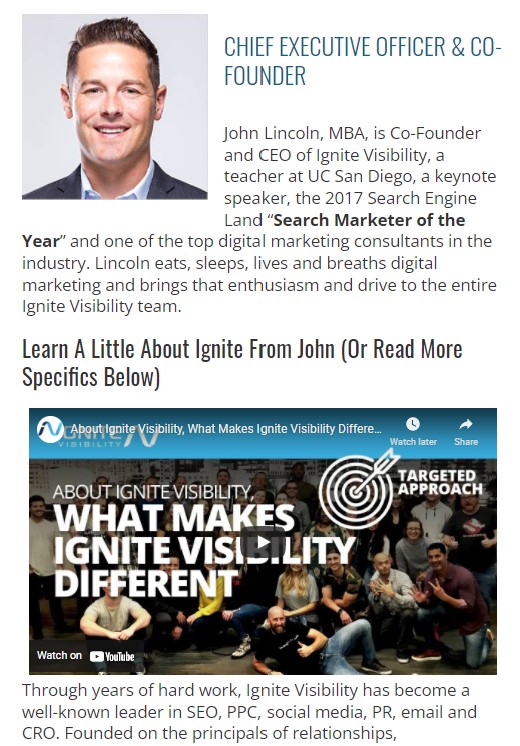
13. Hold a Contest
Modern technology makes it very easy to hold a contest that will help you build your email list. Of course, you’ll need a prize, but that’s usually a limited investment (e.g., one of your smaller products or a short consultation if you’re a service provider).
The trick is that people have to supply an email address to enter the contest. Of course, you’ll add that email address to your distribution list.
Remember, to target your contest to the right people. You don’t want just anybody on your email list. You only want people who are likely to be clients or customers.
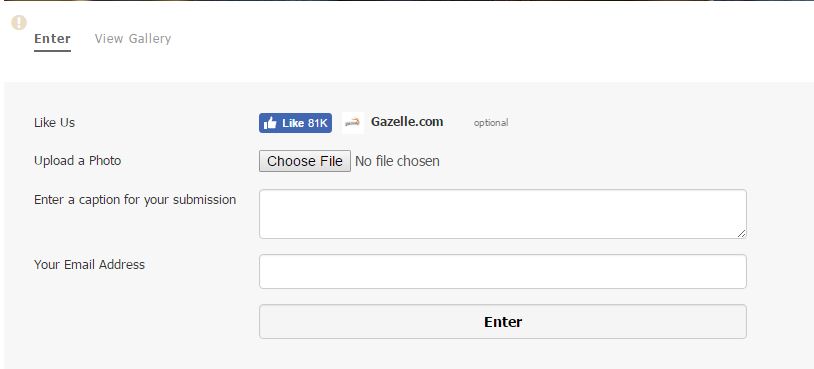
14. Host a Webinar
One of the more recent crazes in digital marketing is the webinar. There’s no shortage of business owners using webinars to promote their brands.
You can also use a webinar to collect email addresses. Just ask people for their email addresses during the registration process.
15. Hold an Exclusive Online Class
People love live interactions and learning opportunities. Hosting an online workshop not only positions you as an authority in your field but is also an excellent way to grow your email list.
Ask participants to sign up with their email address to access the online workshops. Focus on delivering value and the subscribers will come.
16. Make Your Content Shareable
Most email marketing platforms make it exceptionally easy to include social share buttons. If you’re not already using them, start doing so today.
Enable others to post your content on their channels to increase brand awareness.
17. Lean Into Social Proof
Have you ever bought something because a friend recommended it? That’s social proof—and it’s powerful. When visitors see industry experts or personalities endorsing your content, they’re more likely to subscribe.
Include testimonials, case studies, or endorsements on your sign-up page. But remember, authenticity is key. These need to be real endorsements from people who genuinely support your content—no faking it!
18. Engage With Your Audience
Engagement is key. Reply to comments on your blog, and engage on social media.
Be present. When people see you’re a real person that values their input, they’re more likely to subscribe. For inspiration, look at how Gary Vaynerchuk grew his brand by being incredibly active on social media.
19. Use Twitter and Facebook
Do you have followers on Twitter? What about fans on Facebook? Stop asking how to grow an email list when the answer is right in your pocket!
Talk to your existing followers and fans about the email marketing lists you’re building! Make it sound exclusive and worth their while to sign up.
If you’ve followed the advice from one of the previous points, and you’ve got a free offer or service, be sure to let them know about that as well.
Also, Facebook lead forms work really well for email capture. In fact, lead forms built into your social platforms are probably one of the easiest ways to work on your email list building.
20. Use Facebook’s Call to Action Button
Facebook makes it easy for you to give fans and curious visitors alike an easy way to get to your sign-up page. It’s the call to action (CTA) button towards the top of your page.
Just opt for the “Sign Up” text on the button and link it to your landing page. Then, people who visit your fan page and like what they see will have an easy way to add themselves to your distribution list.
21. Use LinkedIn
LinkedIn is the so-called “Facebook for adults.” It’s also a great way to get people to sign up for your email list.
Just add a gated offer to your LinkedIn Company Page and to LinkedIn posts. People who are likely to be part of your target market will follow those links and grab your freebie in exchange for an email address.
22. Use Pinterest to Promote
If you’ve got a Pinterest presence, you can use it to build your list as well.
Just make a picture relevant to one of your free offerings. Then, upload it to Pinterest with a link to your landing page.
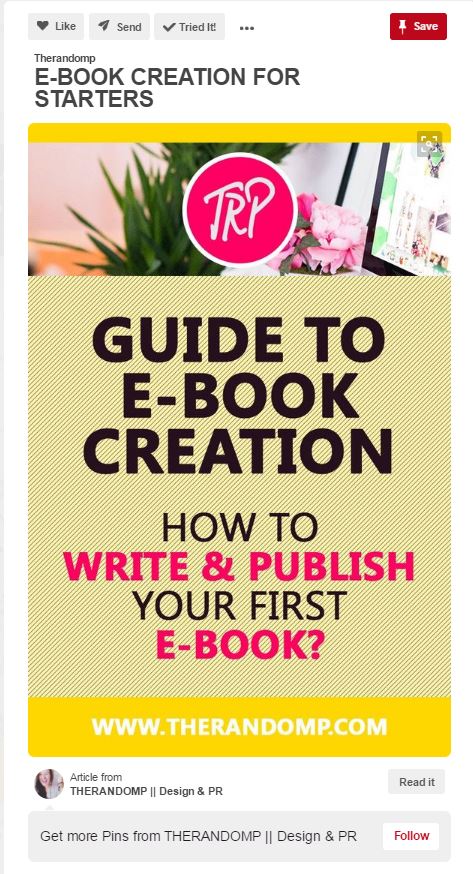
Boom. People will click the link, see your great offer, and provide their email addresses.
23. Use YouTube
Too many marketers fail to leverage YouTube properly. That includes marketers who even make it a habit to upload videos regularly.
Remember, YouTube allows you to not only include links in your video description but also annotations. Those opportunities allow you to get the word out about your email list.
Just add an annotation that reads something like: “Are you learning a lot? Click here to learn more.” When the user clicks the link, he or she is taken to a landing page that offers your freebie in exchange for an email address.
You can add a link to your landing page in the description field as well.
24. Create a Community
People want to belong. Create a community around your niche. This could be a Facebook group, a Slack channel, or even a forum on your website. Require an email address to join.
Check out how GrowthHackers created a community for growth hacking experts and enthusiasts.
Ensure this community is highly moderated and maintained. It should be a safe space for people to ask questions, share insights, and feel part of something.
25. Test Out Paid Search Ads
Your email list is a marketing tool. As such, it’s worthy of an investment.
If you haven’t already done so, run some paid search ads promoting your email list. Be sure that the ad copy includes a clickbait headline so that you can get the most bang for your buck.
26. Use Guest Posts to Promote Your List
You probably already know about the importance of guest posting for SEO purposes. But why limit yourself to just SEO when you’re posting on somebody else’s blog?
Use your guest post to also advertise your freebie. Include a link that takes people to your landing page so they can exchange their email addresses for your offering.
27. Leverage Content Collaborations
Team up with a complementary business or influencer and create content together. Whether it’s a joint blog post, a podcast, or a video, this can expose you to an entirely new audience.
Mention that readers can get more similar content by subscribing to your email list.
For example, podcasters like Tim Ferriss often collaborate with other experts. This not only brings valuable content to listeners but also grows his email list through exposure to other audiences.
28. Make Use of Partners
Like most marketers, you’re probably working with one or more business partners. Why not ask those business partners if they can advertise your freebie on their websites?
Of course, be sure to practice good karma. If partners are nice enough to let you advertise on their sites, you should return the favor and let them advertise on yours.
29. Use a Reputable Autoresponder
There’s not much that will hamper your email marketing efforts more than a poor autoresponder.
If you’re totally new to this and you’ve never heard the word “autoresponder” before, it’s just a fancy term that describes the service you use to blast emails to dozens, hundreds, or even thousands of people.
If you decide to go cheap or try something free just to save some bucks with your email marketing, you’re probably going to regret that decision later on. That’s especially true if your email list grows dramatically.
Invest in a reputable autoresponder that offers templates, tools, and easy-to-use administrative features. The service you select should also provide you with analytics so that you can see which types of emails are getting the best open rates.
30. Email Your Customers a Receipt
If you’re running anything like a brick-and-mortar business, you should ask your customers if they’d like to save some trees by getting an email receipt rather than a paper one.
If they say “yes,” they’re not only helping the planet, but they’re also volunteering to get on your email list.
31. Tell Them Exactly What They’ll Be Getting
Before people sign up to receive an email every so often, they want to know what they’re getting into. Be sure to explain it to them clearly and in such a way that they want to subscribe.

For example, if you’re running an auto parts store, your popup might include text like: “Join over 10,000 auto enthusiasts who receive weekly tips on auto maintenance and news about the hottest deals on the web!”
That’s a message that will appeal to car lovers everywhere. Make a message like that for your niche and watch your subscriptions go up.
32. Tell Them How Often They’ll Be Getting It
Sometimes, people don’t subscribe to an email list because they aren’t sure how often they’ll be receiving your emails.
“I don’t want to get spammed with sales messages every day!” they think to themselves as they click the “No thanks” link on your popup.
But maybe you weren’t planning to send out emails every day. Maybe just once a week is good enough in your market.
That’s why you should tell people how often you’ll send out emails. For example, you could include text that reads: “You will receive no more than one email per week.”
Be sure to keep your promise!
33. Offer a Discount in Exchange for an Email Address
If you’re running an e-commerce site, you might offer people the opportunity to check out quickly without the hassle of filling out numerous form fields.
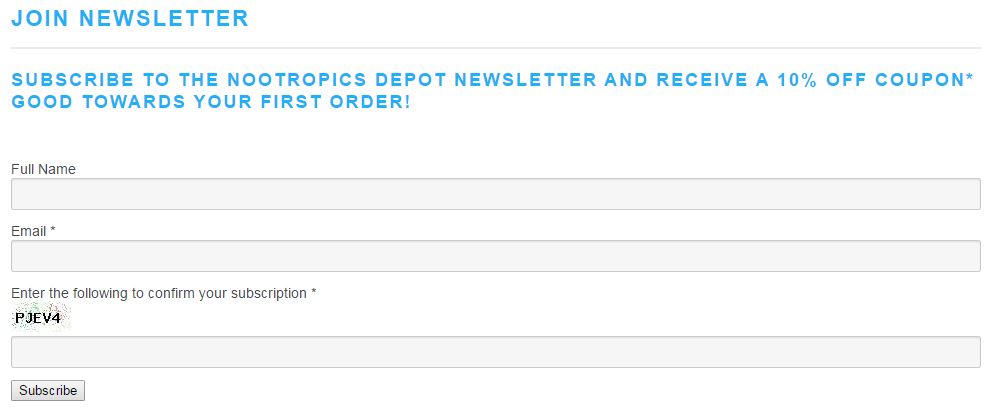
That’s awesome. But you can still use the checkout process to dangle a carrot in front of your customers so that they give you their email address. Just offer a discount on the current order or an item similar to the one that they’re purchasing free of charge in exchange for the email address.
34. Create Multiple, Targeted Email Lists
Speaking of targeted lists, create several of them. Each list should be relevant to a market segment.
For example, if you sell auto parts, you might want one list specific to people who are into vintage automobiles and another only for people who own RVs.
People are more likely to sign up for a list that’s relevant to their very specific needs.
35. Keep Your Form Short
Really, what do you need to collect from prospects? Probably no more than a first name and an email address.
If so, then collect just those pieces of information and nothing else. Don’t worry about the address, city, state, zip code, phone number, marital status, gender, or blood type.
You’re going to lose people who might otherwise have joined your list if you overcomplicate the signup form.
How to Build an Email List Without a Website
You don’t actually need a website to grow email lists. If you want to know how to build an email list for free, there are plenty of tools you can use that are convenient and effective.
Here is some guidance on how to build an email list without a website:
36. Use Social Media Platforms for Email Collection
If you don’t have a website to help grow your email list, you may use certain social media platforms that your audiences use most. You could include lead generation forms on sites like Facebook, LinkedIn, and Instagram, and figure out how to collect emails for marketing most effectively on each.
This approach is one of the best ways to build a free email list for email marketing purposes.
37. Create Standalone Landing Pages
You may also develop standalone off-site landing pages that correspond to each lead gen channel. You can do so using email campaign build tools like Getform and Beehiiv. These user-friendly solutions make it easy to develop landing pages with seamless designs.

38. Engage in Online Communities and Forums
Another way to build a free email list for email marketing involves participating in industry-related forums and communities. You might be able to connect to audiences with topics that appeal to them, gradually attracting them to your offerings and encouraging them to sign up for ebooks and other content expanding on those topics in exchange for an email.
This strategy is particularly great for building your brand authority with expertise, getting people to trust you over competitors.
Advanced Email List Building Tools and Services
To supercharge your email campaigns, you need to implement the best email list building services and solutions.
Here are some popular options you could use as you discover how to build an email list more efficiently:
UpLead
UpLead is great for B2B companies looking to grow email lists, providing them with direct email addresses through verification. Users can search for leads by sales volume, industry, location, management level, and other filters to narrow down their customer selection.
The main benefits of UpLead include:
- Highly accurate contact details
- User-friendly interface with various CRM integrations
- A free trial to give it a shot
Pricing for UpLead starts at $99/month, making it relatively pricey but worth the investment, according to many users.
LevelUp Leads
You can use LevelUp Leads to develop personalized email marketing efforts, helping with lead generation and outreach efforts. Many businesses have turned to this email listing building service to provide a hands-on approach to generating leads through optimized targeting.
Some specific benefits of LevelUp Leads include:
- Great results with a tailored approach for each business
- Targeted lead generation
- High level of expertise
However, LevelUp Leads offers less automation than UpLeads, and pricing can quickly climb, depending on how much you need to customize your solution.
Mayple
Another option is Mayple, which is a marketing platform that connects businesses with experts who specialize in their industry. These experts then monitor growth to determine how to build an email list with continual optimization.
There are several reasons why businesses like Mayple, including:
- Ongoing monitoring and tracking for real-time results
- Connections with experts in SEO, content marketing, PPC, and more
- The ability to develop fully tailored strategies
Pricing for Mayple begins at $1,050 for an email audit.
Cognism
Cognism is another data-driven lead generation platform offering GDPR-compliant details about contacts, with numerous advanced features that can effectively optimize campaigns.
Some pros of Cognism include:
- Sales triggers, intent data, and other advanced lead gen features
- International data coverage
- Accurate data with detailed contact information
On the other hand, some users have found that while the data is typically accurate, some outdated contact details can still get into the system.
Apollo.io
An AI-powered sales platform, Apollo.io also helps automate outreach and connect with high-quality leads, while also managing deals. People love its ease of use and AI-driven lead generation capabilities.
Here are some advantages to help you grow your email list:
- User-friendliness
- Advanced segmentations and filters
- AI-driven outreach and prospecting
What people don’t care for is the tool’s issues with maintaining accurate and updated contact information in some cases, making it potentially less consistently accurate than UpLead.
As you look for the right email campaign build solution, it’s important to consider factors like:
- Your allotted budget and the potential ROI of each email list building service
- What kinds of features you need to fuel lead generation and management
- Whether you want a platform or comprehensive services
- Ease of integration into your existing marketing platforms and processes
Why Effective Marketing Is So Effective
1. A Direct Line to Your Audience
Imagine being able to whisper sweet nothings directly into the ears of your audience. Well, emails are your digital whispers.
People check their inboxes daily, sometimes obsessively. OptinMonster tells us that 99% of email users check their inboxes every day. This means your message isn’t fighting the algorithm to see the light of day—it’s right there, in their personal space.
2. The ROI King
Email marketing boasts an astounding 4200% ROI—$42 for every dollar spent. Learn how to create an email list, and you’re sure to find a return on your investment.
3. Personalization Paradise
One size doesn’t fit all, and email marketing knows it. Through segmentation and personalization, you can make each email feel like it’s been tailor-made.
According to Campaign Monitor, marketers have noted a 760% increase in revenue from segmented campaigns. The delightful folks at Airbnb, for instance, send personalized recommendations that make you want to pack your bags and set out on an adventure.
4. It’s Measurable
In the land of email marketing, everything is measurable. Open rates, click rates, conversions – you name it. Tools like Mailchimp give you a treasure trove of data to dive into. This means you can tinker, test, and optimize until your emails are sharp.
5. Automation Magic
From welcome emails to thank you messages and everything in between, automation ensures your audience stays engaged without you lifting a finger. Brands like Amazon are experts at this – ever received an email from them recommending the perfect book? That’s automation at work.
There are also plenty of solutions to help you identify how to grow an email list with increased efficiency, such as Kit (formerly ConvertKit), Getform, and Beehiiv. These tools offer various features like advanced automation, seamless integrations with many platforms, and the ability to create landing pages without a website.
6. Trust and Relationship Building
People do business with people they trust. Email marketing lets you build that trust by providing value consistently. Whether it’s through a monthly newsletter, weekly tips, or simply keeping them in the loop, you become a familiar and trusted source.
7. Mobile Friendliness
In an age where smartphones are practically an extension of the person, email marketing remains relevant. Why? Because it’s mobile-friendly! A whopping 46% of all emails are opened on mobile devices—this means your emails can reach your audience wherever they are.
Leveraging Interactive Content
To drive more engagement with your campaigns, be sure to incorporate interactive marketing content into the body of your emails.
There are many types of content you could use here, such as quizzes, assessments, and calculators. This content gets people more involved with your emails and helps you further stand apart from competitors.
For example, health food and supplement brand Bulk used a poll in an email to encourage recipients to vote for their favorite flavors. People could even go back to the email to see updated results.

Compliance and Permission Marketing
As privacy becomes more of a priority among consumers and businesses, you must maintain it with your email campaigns.
You need to comply specifically with regulations like the General Data Protection Regulation (GDPR), the Controlling the Assault on Non-Solicited Pornography and Marketing (CAN-SPAM) Act, and the Electronic Communications Privacy Act (ECPA).
To maintain this compliance, disclose how you’ll use people’s data with an in-depth and easily accessible privacy policy. Additionally, enable users to opt in to email campaigns, and make it easy for users to unsubscribe from your list. These permission-based marketing strategies will help you avoid any potential compliance issues and maintain people’s trust.
Optimizing Email Campaigns
If you want to learn how to build an email list that gets real results, you must continually measure and optimize your campaigns.
Here personalization and segmentation will be crucial. Make sure your emails use creatives that truly speak to each audience segment, with corresponding personalized dynamic content that addresses recipients by name while making tailored offers.
Also, use A/B testing to run two versions of an email, subject line, landing page, or another content element to see which performs best. For example, you might test out one subject line that uses emojis while another sticks with descriptive text.
Over time, analyze your metrics for continuous improvement. The metrics you use will depend on your goals, with key metrics including:
- Engagement metrics like open rate and click-through rate
- Deliverability metrics like spam complaint rate and deliverability rate
- List growth rate
- Conversion rate
- Revenue per Recipient and return on investment (ROI)
Measuring these results against your goals could help determine how to grow your mailing list and optimize email strategies for better performance.
FAQs on How to Build an Email List
1. Why do I need an email list?
With Google announcing that they are saying goodbye to cookies and iOS no longer tracking their users as frequently, you’re going to need a better way to target your audience. Email marketing lists are the best way to do this.
With Google bidding farewell to cookies and iOS reducing user tracking, the need for more effective audience targeting arises. Leveraging email marketing software and building robust email marketing lists becomes the optimal solution to achieve this goal.
2. What are the best ways to go about email list building?
Give your audience a reason to want to join your list. Offer them a freebie or a discount in exchange for their information.
3. What’s the most important thing to consider when you start to think about how to grow an email list?
Make it easy for your user to give you their information! You want the information more than they want to give it to you so don’t make it harder for them to turn it over. If you make it as easy as possible, they’re more likely to give it to you.
4. Do I need to pay for email marketing lists?
No way! You definitely can hire an agency or professional to help you and you can also run paid ads but you can also take advantage of the free things around you, like your social media channels and a popup on your existing website.

